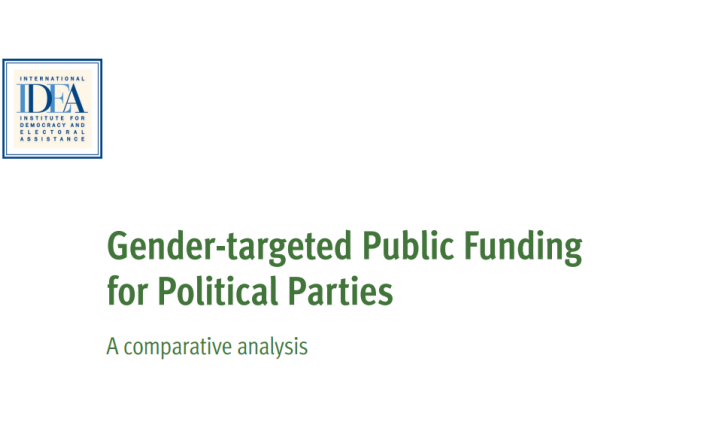Gender-targeted Public Funding for Political Parties: A Comparative Analysis
Source: International IDEA
Gender inequality in the political process remains an important problem in all countries.
Women often have less access than men to the resources needed to successfully seek a party nomination or stand in an election, and political parties tend to nominate men to winnable positions.
This report focuses on the particular political party regulations where the provision of public funding (state assistance) to political parties is linked to gender-related activities by those parties. Such provisions exist today in around 30 countries worldwide and it is a form of regulation that has become increasingly common in the past two decades.
The report explores the concept of gender-targeted funding and its different modalities. Detailed case studies from Albania, Croatia, France, Haiti and Portugal illustrate experiences from different countries and the concluding chapter presents recommendations for countries considering using these methods to increase women’s political representation.
Click here to read the report.

Gender inequality in the political process remains an important problem in all countries.
Women often have less access than men to the resources needed to successfully seek a party nomination or stand in an election, and political parties tend to nominate men to winnable positions.
This report focuses on the particular political party regulations where the provision of public funding (state assistance) to political parties is linked to gender-related activities by those parties. Such provisions exist today in around 30 countries worldwide and it is a form of regulation that has become increasingly common in the past two decades.
The report explores the concept of gender-targeted funding and its different modalities. Detailed case studies from Albania, Croatia, France, Haiti and Portugal illustrate experiences from different countries and the concluding chapter presents recommendations for countries considering using these methods to increase women’s political representation.
Click here to read the report.